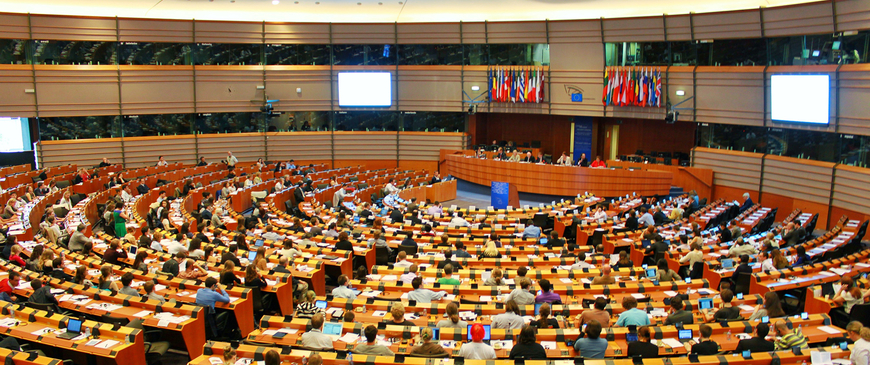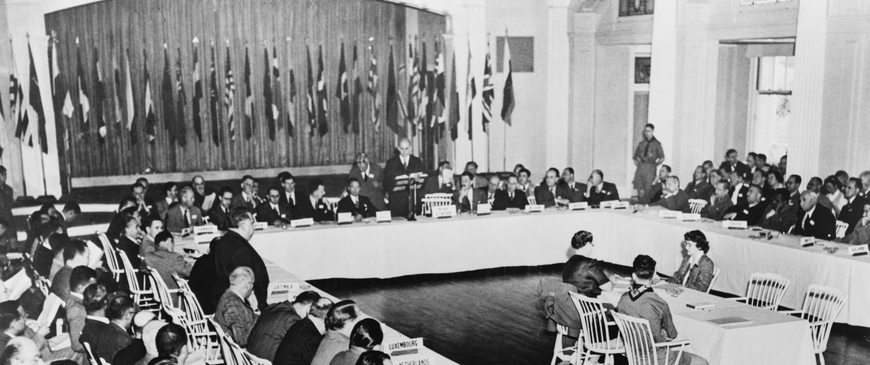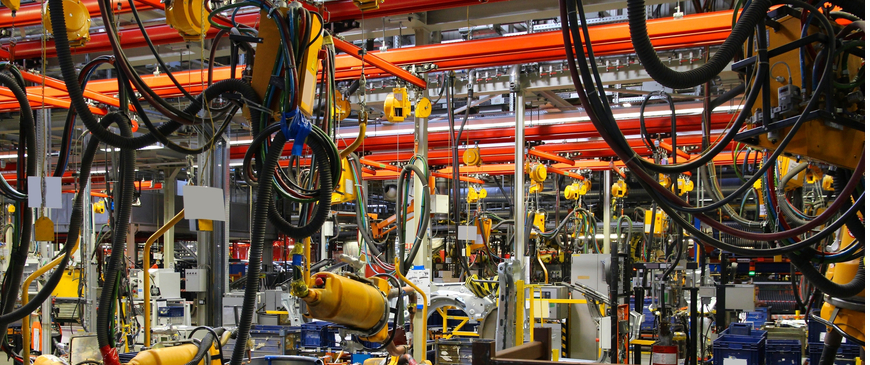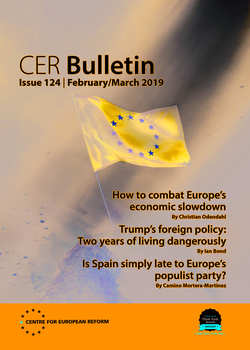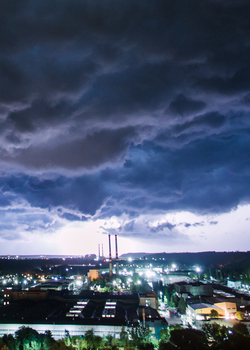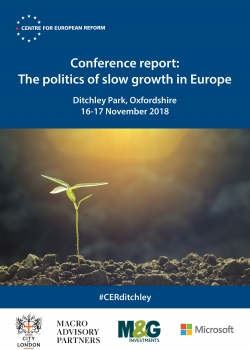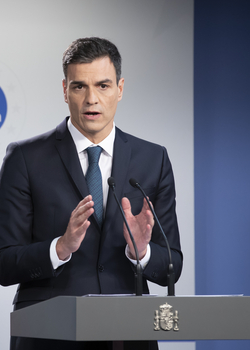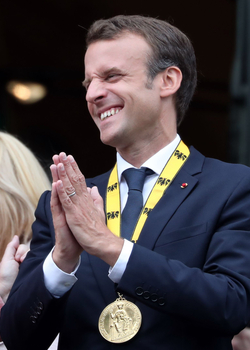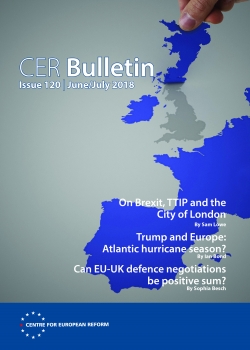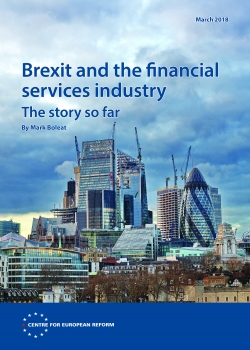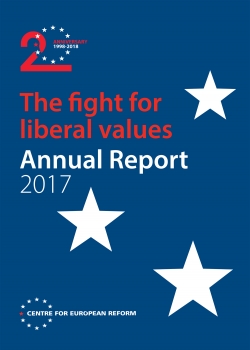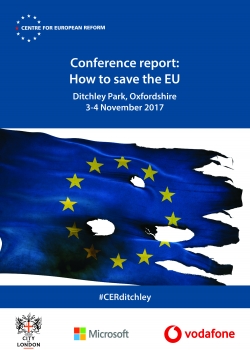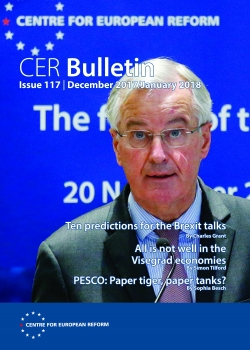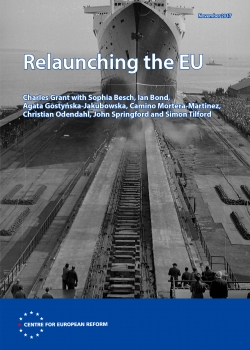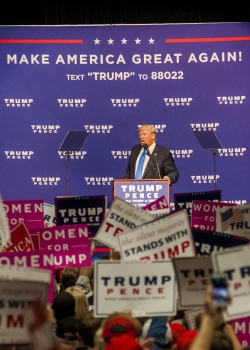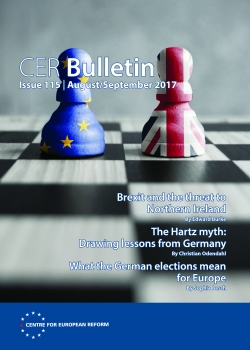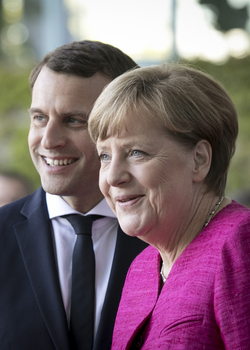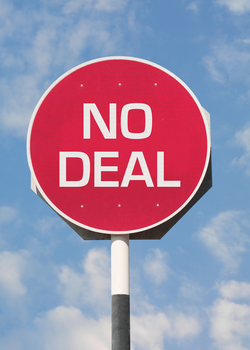Macroeconomics & the euro
Bulletin Issue 124 - February/March 2019
25 January 2019
- How to combat Europe's economic slowdown, Christian Odendahl
- Trump's foreign policy: Two years of living dangerously, Ian Bond
- Is Spain simply late to Europe's populist party?, Camino Mortera-Martinez
How to combat Europe's economic slowdown
25 January 2019
Europe is experiencing an economic slowdown at an exceptionally bad time, but has the tools to fight it and should use them soon.
Conference report: The politics of slow growth in Europe
19 December 2018
A new CER report summarises its 2018 Ditchley Park conference, which brought together 50 leading economists to discuss 'The politics of slow growth in Europe'.
Can the euro rival the dollar?
04 December 2018
The international role of the US dollar is deeply entrenched. To change that, Europe – and Germany in particular – would need to rethink some core economic policies.
The accidental prime minister: What Spain's new government means for the EU
26 July 2018
Spain’s new government might not last long. But it could act as a catalyst for progress on the thorny issues of migration, eurozone reform and Catalonia.
Is Macron becoming isolated in Europe?
13 June 2018
Macron thinks the EU is not viable without radical reform. His priority is to reshape the eurozone, but Germany is blocking his bolder ideas. He risks isolation in Europe, which could weaken him at home.
Bulletin Issue 120 - June/July 2018
30 May 2018
- On Brexit, TTIP and the City of London, Sam Lowe
- Trump and Europe: Atlantic hurricane season?, Ian Bond
- Can EU-UK defence negotiations be positive-sum?, Sophia Besch
On Brexit, TTIP and the City of London
30 May 2018
The EU was keen to include financial services in TTIP, the proposed trade agreement with the US. Is its reluctance to do so with the UK mere hypocrisy?
Brexit and the financial services industry: The story so far
27 March 2018
The City will survive Brexit, but it will not emerge unscathed. In order to remain competitive Britain’s financial services industry will need to adapt, as it has always done.
The fight for liberal values: Annual report 2017
06 February 2018
The CER's annual report features essays on the creation of the CER, the CER at 20, Brexit, economics and Donald Trump's impact on geopolitics, it also highlights some of our work on foreign and defence policy.
Italy after the election: From partner to spoiler?
30 January 2018
Italy's 4th March election is likely to be less consequential than many assume. But it will highlight the urgency of reforming the eurozone and better managing migration.
Conference report: How to save the EU
15 January 2018
50 leading economists, political scientists and experts on the EU considered the forces undermining the Union, and how Europe should respond to them.
All is not well in the Visegrad economies
29 November 2017
On the face of it the Visegrad – the Czech Republic, Hungary, Poland and Slovakia – appear to be doing quite well economically. But there are problems behind the headline growth figures.
Bulletin Issue 117 - December 2017/January 2018
29 November 2017
- Ten predictions for the Brexit talks, Charles Grant
- All is not well in the Visegrad economies, Simon Tilford
- PESCO: Paper tiger, paper tanks?, Sophia Besch
Relaunching the EU
07 November 2017
The EU is ripe for fundamental reform. New policies are needed for migration and the euro. The EU also needs more flexible structures so that countries can opt in and out of key policies.
Populism – culture or economics?
30 October 2017
Are economic factors to blame for the rise of populism, or is it a cultural backlash? The answer is a bit of both: economic weakness strengthens social conservatives' illiberal views.
How the ECB should respond to a German fiscal boost
26 September 2017
A German stimulus has the potential to help the eurozone economy. But how the ECB reacts is key.
Bulletin Issue 115 - August/September 2017
20 July 2017
- Brexit and the threat to Northern Ireland, Edward Burke
- The Hartz myth: Drawing lessons from Germany, Christian Odendahl
- What the German elections mean for Europe, Sophia Besch
Macron, Merkel and the future of the euro
24 May 2017
Emmanuel Macron wants to change the way the eurozone is run. But can he persuade Angela Merkel?
Why no deal would be much worse than a bad deal
24 May 2017
Theresa May and several of her ministers have claimed that no Brexit deal would be better than a poor deal. They are wrong.

